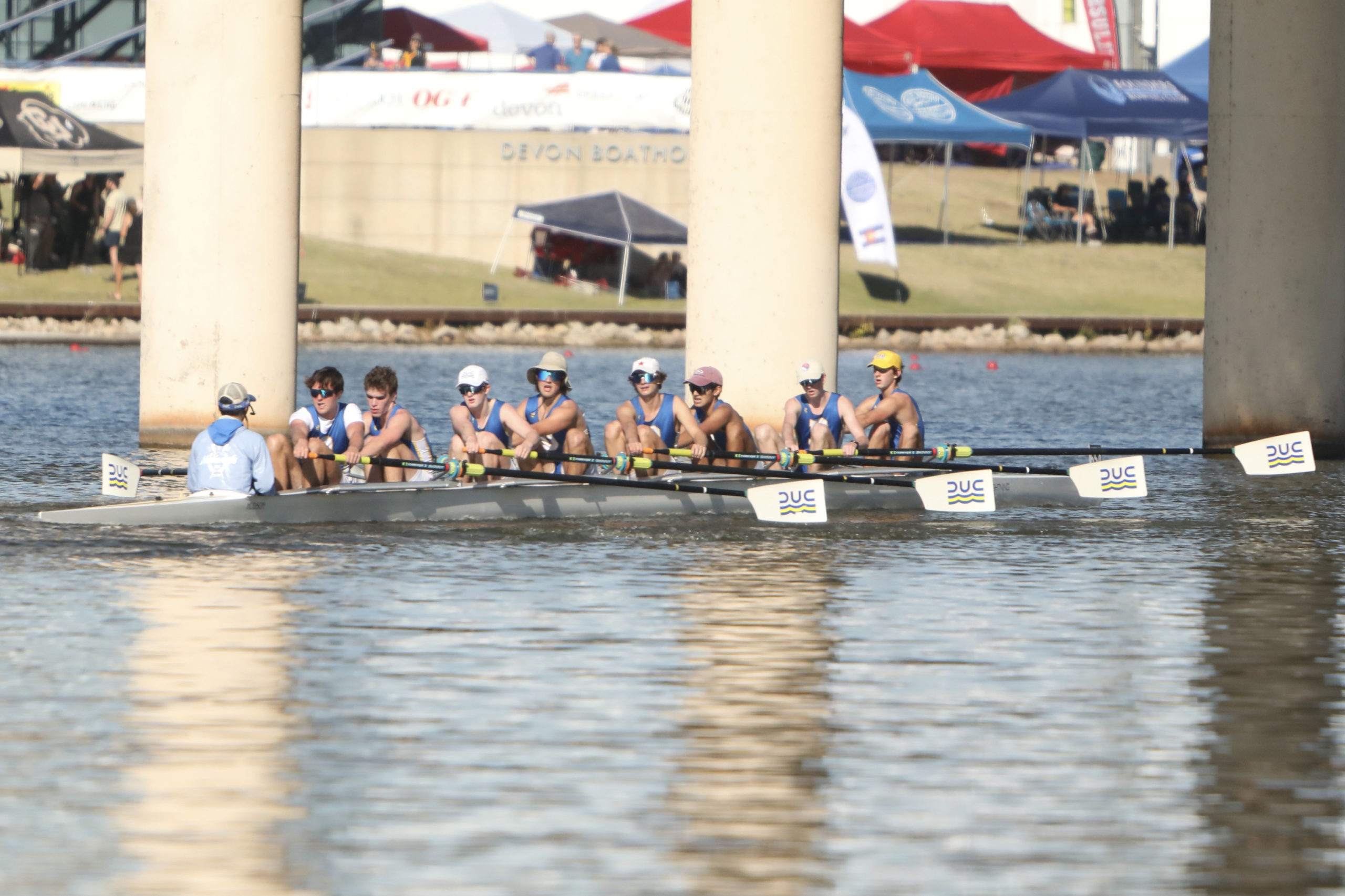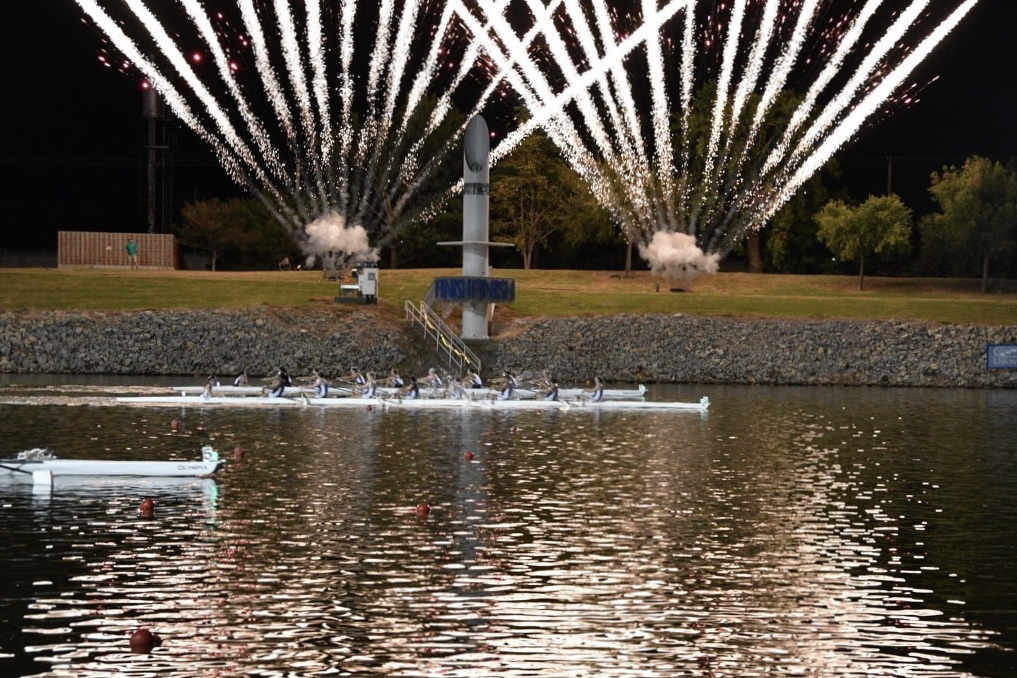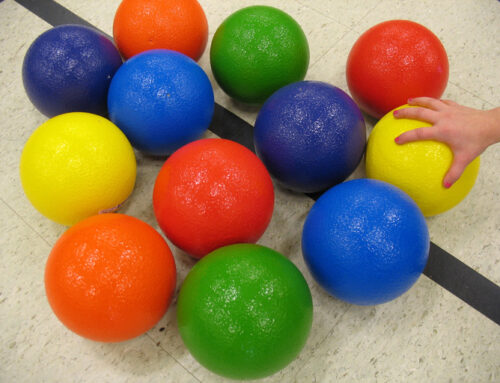
Dallas United Crew’s varsity boys won gold in the eights event at the Head of the Oklahoma. Photo provided by Dallas United Crew.
Dallas United Crew, which is based at White Rock Lake, traveled last weekend to the Oklahoma Regatta Festival and returned with seven medals.
The festival features rowing and dragon boat racing. Two of the races are rowing regattas: the Head of the Oklahoma and the Night Sprints. The Head of the Oklahoma, which was held on Saturday and was sponsored by Oklahoma City University, is 2.5 miles long and takes crews under 11 bridges, including an active railroad and Interstate 35. The top six finishers in every marquee event qualify for the OG&E Night Sprints, a 500-meter sprint race occurring after the sun goes down.
In the youth events for the Head of the Oklahoma, Dallas United Crew entered boats of four rowers and later, in the marquee event, boats of eight rowers. The girls’ and boys’ varsity crew both took third place in the coxed fours category, and the boys’ junior varsity crew took second.
Then, in the eights event, the varsity boys’ crew won first place, defeating local rival Jesuit College Preparatory. The varsity girls’ boat took third, losing to the varsity and junior varsity boats fielded by regional powerhouse Austin Rowing Club. With their top-three finishes, both crews qualified for the Night Sprints.
Head races are different from sprint races, the latter being what you would find if you watched Olympic rowing on television. In sprint races, every crew lines up next to one another and dashes across a straight course, usually 2 kilometers (about 1.25 miles) long. Head races, however, are usually at least 4 kilometers long and often feature sharp turns. This makes the job of the coxswain, who is in charge of controlling the boat’s rudder and shouting commands to rowers, all the more important.
Unlike in sprint races, crews entered in head races do not have their own lane to stay in, nor do they start all at once. Boats are released one after the other from the start line, and the time it takes each to complete the course determines the champion. Not only do crews have to worry about navigating winding rivers, but they also have to pass other crews without veering off track. Coxswains can plot a shorter course through savvy steering, while unprepared crews might lose valuable time if not adequately prepared for maneuvering through the course.
Dallas United Crew won three bronze medals, one silver and one gold at the Head of the Oklahoma. But the team had its biggest showing later that night.

Fireworks go off as the varsity girls cross the finish line, beating a crew from Austin Rowing Club. Photo provided by Dallas United Crew.
The Night Sprints conjure a festive mood; rowers don face paint and glow stick bracelets, and fireworks shoot into the sky when the first boat crosses the finish line. While head races require endurance, the 500-meter sprint races are over in less than two minutes, demanding explosive power from the rowers. Usually, crews don’t row at night, but the Oklahoma River is the only rowing venue in the world to have permanent stadium lights installed.
Both the varsity boys and the varsity girls brought gold medals home from the sprints. The boys’ crew won their event by beating Jesuit Prep by nine-tenths of a second. The varsity girls pulled off the upset of the night, beating Austin’s varsity crew by four-tenths of a second, despite finishing behind that same crew only five hours earlier.
Dallas United Crew’s next race will be the Head of the Charles, the largest regatta in the world. Located in Cambridge, Massachusetts, more than 11,000 athletes compete every year. The regatta is held the penultimate weekend of October.





